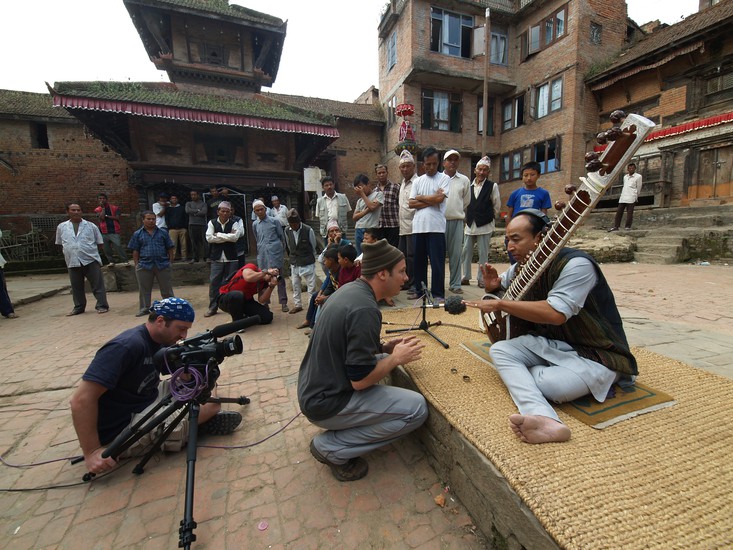Last year I interviewed Mark Johnson of Playing For Change for the Village Voice. It was a companion piece of sorts to my field recording column Cast In Concrete, and as such we really connected when it came to discussing and complaining about the logistics. We kept in touch, and this has culminated in a technical interview in issue #96 of the audio production magazine Tape Op, which came out today. If you do not already have a subscription, you should pick one up now, because they’re free.
As the head of Playing For Change, Mark Johnson travels the world with a small crew, a high-end mobile recording rig, and video cameras, to capture buskers and other undiscovered musicians — perhaps a drummer deep in the Congo, a guitarist on a New Orleans street corner, or a choir in South America. But this isn’t just an anthropological expedition — after a little coaching, johnson has them all play the same song, along with the same metronome and/or backing track, stacking overdubs to create a “virtual collaboration” between musicians who otherwise would likely have never met. The resulting videos and albums have turned his project into a viral sensation. The humanitarian spirit of peace and unity at the root of all this makes the goals lofty and the logistics difficult; yet, somehow, Johnson cuts no corners, even in the wildest destinations.
Vijith Assar: One could argue that fidelity is not the point of a project like this.
Mark Johnson: With a lot of music documentaries, whenever you would hear street musicians it was always some camera mic picking them up. I always felt like they never got a fair shake. We realized if we brought good microphones, used different windscreens, a nice clock, good mic pres, and recorded it at a higher quality, we could give these things a chance to actually be represented properly to an audience. So, that’s why we wanted to bring the studio to the street.

